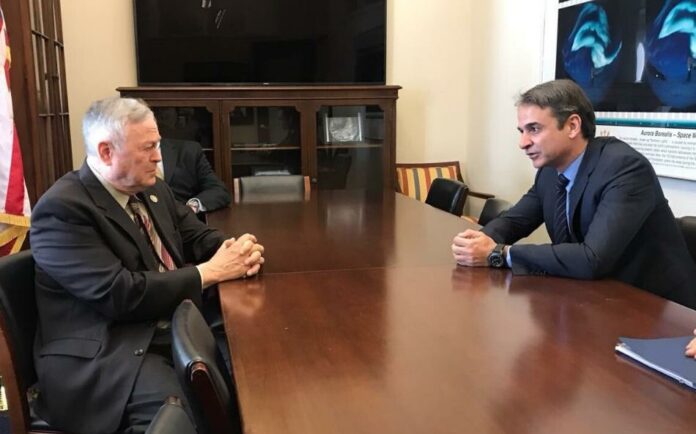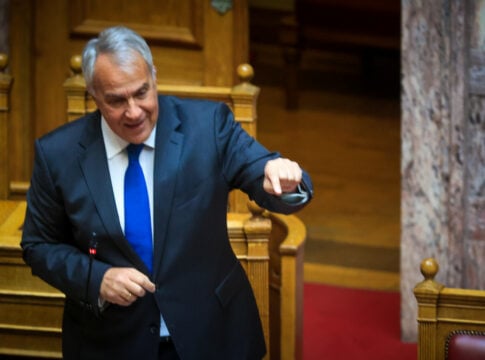Main opposition New Democracy (ND) leader Kyriakos Mitsotakis emphasized his plan for attracting much-needed foreign direct investments to Greece, in contacts on Wednesday during on the second day of his visit to the United States.
In repeating that the country has “unique advantages” for would-be investors, such as highly skilled human resources, he nevertheless added that what’s needed is a “new government that will guarantee the rule of law and the establishment of an attractive and a stable tax system.”
Mitsotakis met separately in Washington D.C. with US Rep. (R-Calif.) Dana Rohrabacher, a member of the US House Committee on foreign affairs, Under Secretary of the Treasury for International Affairs David Malpass, US Sen. (R-Ten) Bob Corker, the chairman of the US Senate Committee on Foreign Relations, as well as Deputy Secretary of State John Sullivan, while on Wednesday afternoon he dined with US Sen. (R-Ken) Rand Paul.
Relations with Turkey, and specifically increasingly strained ties between Washington and Ankara and, lately, between Athens with Ankara, reportedly dominated Mitsotakis’ talks with US officials. Sources close to Mitsotakis later said both sides agreed over the fact that the current juncture requires “serious and sensitive diplomatic maneuvering” , so that Turkey does not slip further from its western orientation.
Mitsotakis also directly referred to the need for an immediate return of two Greek servicemen held by Turkish authorities after allegedly straying into Turkish territory, at a border region between the two countries, exactly two weeks ago.
In talks with Malpass at the US Treasury Department, Mitsotakis presented what was described as a strategic growth plan for the Greek economy after the current bailout ends in August 2018.
The US official, on his part, repeated that America continues to seek economic cooperation with countries that have a free market and liberal economic policy.














